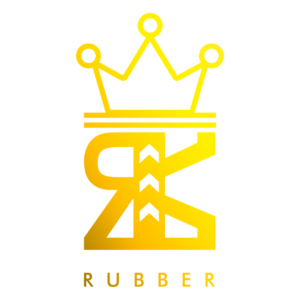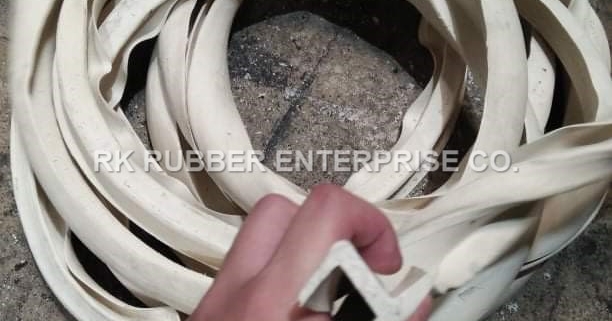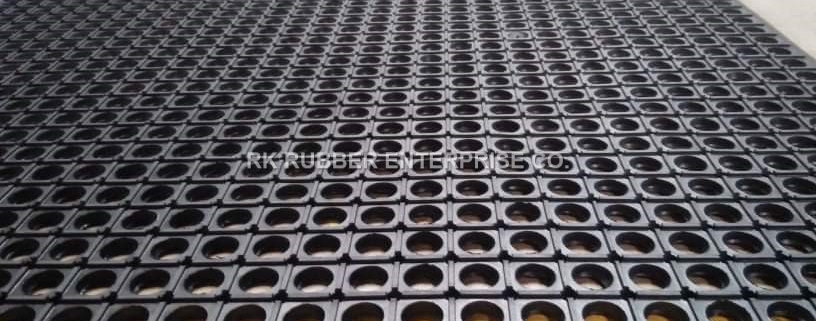Silicone Ring Manufacturer in the Philippines
Silicone ring manufacturers in the Philippines specialize in producing elastomeric components tailored for industrial applications requiring high resilience and chemical stability. These manufacturers employ advanced molding technologies to guarantee dimensional accuracy and material consistency. Their products serve critical roles in sectors such as pharmaceuticals, automotive, and water treatment, where sealing performance and longevity are paramount. Understanding the manufacturing process and material properties is essential when evaluating suppliers for specific operational needs.
Key Points
- Leading silicone ring manufacturers in the Philippines specialize in injection molding for precision and scalable production.
- Philippine manufacturers offer customization in size, color, and material formulation to meet diverse industry needs.
- Quality control and adherence to international standards ensure durability, chemical resistance, and thermal stability in silicone rings.
- Local manufacturers provide technical support for integration in pharmaceutical, automotive, and water treatment applications.
- Selecting manufacturers with innovation-driven processes guarantees advanced silicone rings suitable for demanding operational environments.
Overview of Silicone Rings and Their Applications
Silicone rings are elastomeric components engineered for sealing, cushioning, and mechanical interfacing across various industrial sectors. Rooted in a rich silicone ring history, these components evolved from early medical applications in the 1950s to diverse industrial uses today. Innovations in silicone ring manufacturing have enhanced their chemical resistance, flexibility, and thermal stability, making them indispensable in automotive, pharmaceutical, and petrochemical industries. These advancements enable precise sealing solutions in environments demanding durability and non-toxicity. Modern silicone rings exhibit improved wear resistance and customizable properties through vulcanization and material formulation, addressing complex operational challenges. Their adaptability and performance underscore ongoing innovation, positioning silicone rings as critical elements in cutting-edge industrial designs and processes requiring reliable, long-lasting sealing components.
Advantages of Silicone Rings in Industrial Settings
When subjected to demanding industrial environments, elastomeric rings composed of silicone offer distinct advantages over alternative materials due to their exceptional resistance to temperature extremes, chemical exposure, and mechanical wear. These properties enable compliance with stringent safety standards critical in sectors such as chemical processing and oil and gas. Silicone rings exhibit superior flexibility and corrosion resistance, reducing maintenance frequency and downtime. From a cost perspective, their durability minimizes replacement needs, delivering long-term savings despite a higher initial investment compared to some alternatives. Additionally, their low friction coefficient facilitates installation and removal, optimizing operational efficiency. Collectively, these traits position silicone rings as a forward-looking solution for industries prioritizing safety, reliability, and cost-effective performance under severe operational conditions.
Comparison Between Silicone Rings and Metal Rings
Numerous factors distinguish silicone rings from metal rings in industrial applications, particularly material properties, durability, and suitability for specific operating conditions. Silicone properties such as flexibility, chemical resistance, and high-temperature tolerance enable superior performance in corrosive and thermal environments compared to metal counterparts. While metal rings offer greater mechanical strength and longevity under high-pressure conditions, silicone rings excel in applications demanding resilience to impact, lower friction, and non-corrosive behavior. Silicone’s lower brittleness and enhanced sealing capabilities make it ideal for dynamic or chemically aggressive settings. However, metal rings remain preferable for heavy-duty, high-stress environments due to their structural robustness. Selecting between silicone and metal rings requires evaluating operational parameters, balancing silicone’s adaptability against metal’s durability to optimize performance in targeted industrial applications.
Key Industries Utilizing Silicone Rings in the Philippines
Silicone rings are extensively utilized across several key industries in the Philippines due to their chemical resistance, flexibility, and durability. In the pharmaceutical sector, they provide reliable sealing solutions for medical devices and consumer products. Additionally, their application in water treatment systems and automotive manufacturing highlights their versatility in managing harsh environments and operational demands.
Pharmaceutical Industry Applications
The pharmaceutical sector in the Philippines extensively employs silicone rings due to their superior sealing capabilities and chemical inertness, which are critical for maintaining equipment integrity and product safety. Silicone rings enable pharmaceutical innovations by providing reliable, contamination-free seals in manufacturing and packaging processes. Their resistance to high temperatures and corrosive substances aligns with stringent safety regulations, ensuring compliance and reducing cross-contamination risks. Additionally, the material’s non-toxic and durable nature supports long-term use in sterile environments. By integrating silicone rings into critical pharmaceutical equipment, manufacturers achieve enhanced operational efficiency and product consistency. This adoption underscores the material’s pivotal role in advancing the Philippines’ pharmaceutical industry, meeting evolving technical demands while adhering to rigorous regulatory frameworks for quality assurance and safety.
Water Treatment Uses
Beyond pharmaceutical applications, silicone rings play a significant role in water treatment processes within the Philippines. Their unique silicone properties, including chemical resistance, thermal stability, and flexibility, make them ideal for sealing and monitoring systems in water treatment facilities. These rings effectively prevent leaks and withstand exposure to corrosive agents commonly found in treatment environments. Additionally, silicone rings serve as anti-fouling components, inhibiting biofilm and algae buildup on pipelines, thereby enhancing system efficiency and longevity. Their resistance to temperature fluctuations guarantees reliable performance in heat exchangers and flow control systems integral to water purification. The adaptability and durability of silicone rings position them as critical components in advancing water treatment technologies, supporting sustainable and efficient water management infrastructure across the Philippines.
Automotive Industry Benefits
When exposed to high temperatures and chemical agents typical in automotive manufacturing and operation, silicone rings maintain their integrity and performance. Their exceptional resistance to heat and chemicals guarantees reliable sealing and durability in engine components and fluid systems. Silicone rings offer enhanced design flexibility, enabling engineers to tailor solutions to complex geometries without compromising safety features. The material’s resilience reduces maintenance frequency, optimizing operational efficiency and longevity. Key benefits include:
- Superior chemical resistance for enhanced engine protection
- High thermal stability supporting rigorous automotive environments
- Design flexibility enabling innovative component integration
- Improved safety features minimizing failure risks under stress
These attributes make silicone rings indispensable in the automotive sector, driving innovation and reliability in Philippine manufacturing.
Manufacturing Process of Silicone Rings
Although silicone rings can be produced using various methods, injection molding remains the predominant manufacturing process due to its precision and efficiency. This silicone molding technique involves injecting liquid silicone into custom-engineered molds under controlled temperature and pressure, ensuring uniformity and tight dimensional tolerances critical for industrial applications. Advanced production techniques, such as multi-cavity molds and automated demolding, optimize cycle times and scalability. Post-molding processes like trimming and vulcanization enhance ring integrity and mechanical properties. The capability to integrate complex geometries and color customization during molding positions injection molding as the preferred method for innovation-driven manufacturers. Overall, these refined silicone molding production techniques deliver high-quality, consistent silicone rings tailored for demanding environments across pharmaceutical, automotive, and industrial sectors.
Material Properties and Durability of Silicone Rings
The manufacturing process, particularly injection molding and post-molding treatments, greatly influences the material properties and durability of silicone rings. Optimized molding guarantees enhanced silicone properties such as elasticity, chemical resistance, and thermal stability. Post-molding vulcanization further strengthens the polymer network, improving ring flexibility and lifespan. These factors collectively enable silicone rings to endure mechanical stress and harsh environments without degradation.
- Experience unparalleled resilience against extreme temperatures
- Benefit from superior flexibility that adapts to dynamic applications
- Trust in corrosion resistance for longevity in aggressive chemicals
- Rely on consistent performance under continuous mechanical strain
Such precision-engineered silicone rings represent a leap forward in industrial sealing solutions, delivering durable, adaptable, and innovative components tailored for demanding sectors.
Maintenance Tips for Prolonging Silicone Ring Lifespan
Effective maintenance protocols considerably extend the operational lifespan of silicone rings in industrial settings. Ideal silicone ring care begins with routine silicone ring cleaning to remove accumulated debris and chemical residues that can degrade material integrity. Employing non-abrasive cleaning agents preserves the silicone’s structural properties and surface smoothness, essential for maintaining effective sealing. Lubrication with compatible, industry-approved substances minimizes friction and wear during operation, enhancing durability. Periodic inspections are critical to detect early signs of wear, deformation, or loss of elasticity, enabling timely replacement before failure occurs. Adhering to these precise maintenance practices guarantees consistent performance, reduces downtime, and maximizes return on investment, thereby supporting innovative applications across pharmaceutical, automotive, and chemical industries where silicone rings provide critical sealing solutions.
Selecting the Right Silicone Ring Manufacturer in the Philippines
Where can industries in the Philippines source high-quality silicone rings that meet stringent performance standards? Selecting the right silicone ring manufacturer requires evaluating adherence to rigorous manufacturing standards and the ability to deliver innovative silicone ring designs tailored to specific industrial needs. Key considerations include:
- Proven track record in quality control and compliance
- Advanced material technology guaranteeing durability and performance
- Customization capabilities for complex silicone ring designs
- Responsive technical support for seamless integration
Manufacturers must demonstrate expertise in producing rings that withstand extreme environments while maintaining precision and reliability. Prioritizing partners with robust certification and innovation-driven processes guarantees peak product lifecycle and operational efficiency. For industries demanding excellence, aligning with a manufacturer committed to cutting-edge standards and design flexibility is essential.
Frequently Asked Questions
What Certifications Should a Silicone Ring Manufacturer in the Philippines Have?
A silicone ring manufacturer should obtain certifications ensuring quality standards and industry compliance, such as ISO 9001 for quality management, ISO 14001 for environmental management, and FDA approval if applicable, to guarantee product safety and innovation adherence.
Can Silicone Rings Be Custom-Colored or Branded for Specific Companies?
Painting with a broad brush, silicone rings can be custom-designed with various color options to meet branding needs. Advanced manufacturing techniques enable precise incorporation of logos, ensuring innovative, visually distinct products tailored for specific corporate identities.
What Is the Typical Lead Time for Silicone Ring Production in the Philippines?
The typical production timeline for silicone rings depends on the manufacturing process complexity, including molding and curing stages. Efficient workflow and advanced techniques optimize lead times, generally spanning two to four weeks, ensuring precision and customization capabilities.
Are There Eco-Friendly or Recyclable Silicone Ring Options Available?
Eco-friendly silicone ring options increasingly incorporate sustainable materials, aligning with industry standards for environmental responsibility. Manufacturers adopt eco-friendly practices, such as recyclable silicone formulations and reduced waste processes, promoting innovation in sustainable ring production for diverse industrial applications.
How Does Shipping and Logistics Work for Silicone Rings Exported From the Philippines?
Steering shipping methods for silicone rings involves orchestrating seamless shifts across sea and air freight, addressing logistic challenges like customs clearance and temperature control. Precision in packaging and real-time tracking guarantees innovation-driven efficiency in global distribution.
Conclusion
Silicone ring manufacturers in the Philippines deliver indispensable components that drive industrial precision and resilience to near-mythical levels. Their expertly engineered elastomeric solutions withstand extremes of pressure, temperature, and chemical exposure, ensuring flawless performance in critical applications. Choosing a certified manufacturer guarantees not just a product, but an unbreakable alliance with innovation and reliability—where every silicone ring acts as the silent guardian of operational excellence across pharmaceutical, automotive, and water treatment sectors.


